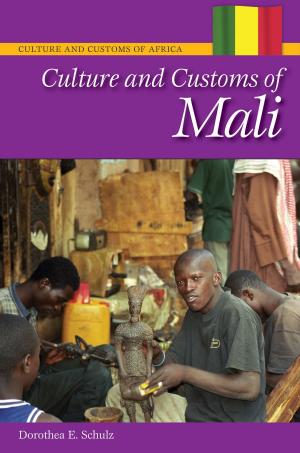Religion and Spirituality for Diverse Women: Foundations of Strength and Resilience
Foundations of Strength and Resilience
Nonfiction, Religion & Spirituality, Inspiration & Meditation, Spirituality| Author: | Thema Bryant-Davis, Asuncion Miteria Austria, Debra M. Kawahara, Diane J. Willis Ph.D. | ISBN: | 9781440833304 |
| Publisher: | ABC-CLIO | Publication: | September 30, 2014 |
| Imprint: | Praeger | Language: | English |
| Author: | Thema Bryant-Davis, Asuncion Miteria Austria, Debra M. Kawahara, Diane J. Willis Ph.D. |
| ISBN: | 9781440833304 |
| Publisher: | ABC-CLIO |
| Publication: | September 30, 2014 |
| Imprint: | Praeger |
| Language: | English |
Religion and spirituality are sources of strength and resilience for many women, particularly ethnically diverse women. This thought-provoking text examines this psychological trend, exploring the specific ways in which women from diverse backgrounds have benefited from their faith traditions, the various spiritual pathways they have chosen, and the impact of those choices on their lives.
Essays in this informative compilation show how women from African American, Latina, American Indian, Asian American, and Caucasian backgrounds recover from difficulties and traumas with the help of their faith. Contributors consider why women are more likely to endorse religious engagement than men; why ethnically marginalized women tap into spirituality for comfort more than any other population; and why many believers embrace religion as a coping mechanism throughout their lives—from adolescence to older adulthood. The work suggests ways for counselors, leaders, and religious figures to utilize this knowledge to bolster the well-being of those they serve.
Religion and spirituality are sources of strength and resilience for many women, particularly ethnically diverse women. This thought-provoking text examines this psychological trend, exploring the specific ways in which women from diverse backgrounds have benefited from their faith traditions, the various spiritual pathways they have chosen, and the impact of those choices on their lives.
Essays in this informative compilation show how women from African American, Latina, American Indian, Asian American, and Caucasian backgrounds recover from difficulties and traumas with the help of their faith. Contributors consider why women are more likely to endorse religious engagement than men; why ethnically marginalized women tap into spirituality for comfort more than any other population; and why many believers embrace religion as a coping mechanism throughout their lives—from adolescence to older adulthood. The work suggests ways for counselors, leaders, and religious figures to utilize this knowledge to bolster the well-being of those they serve.















